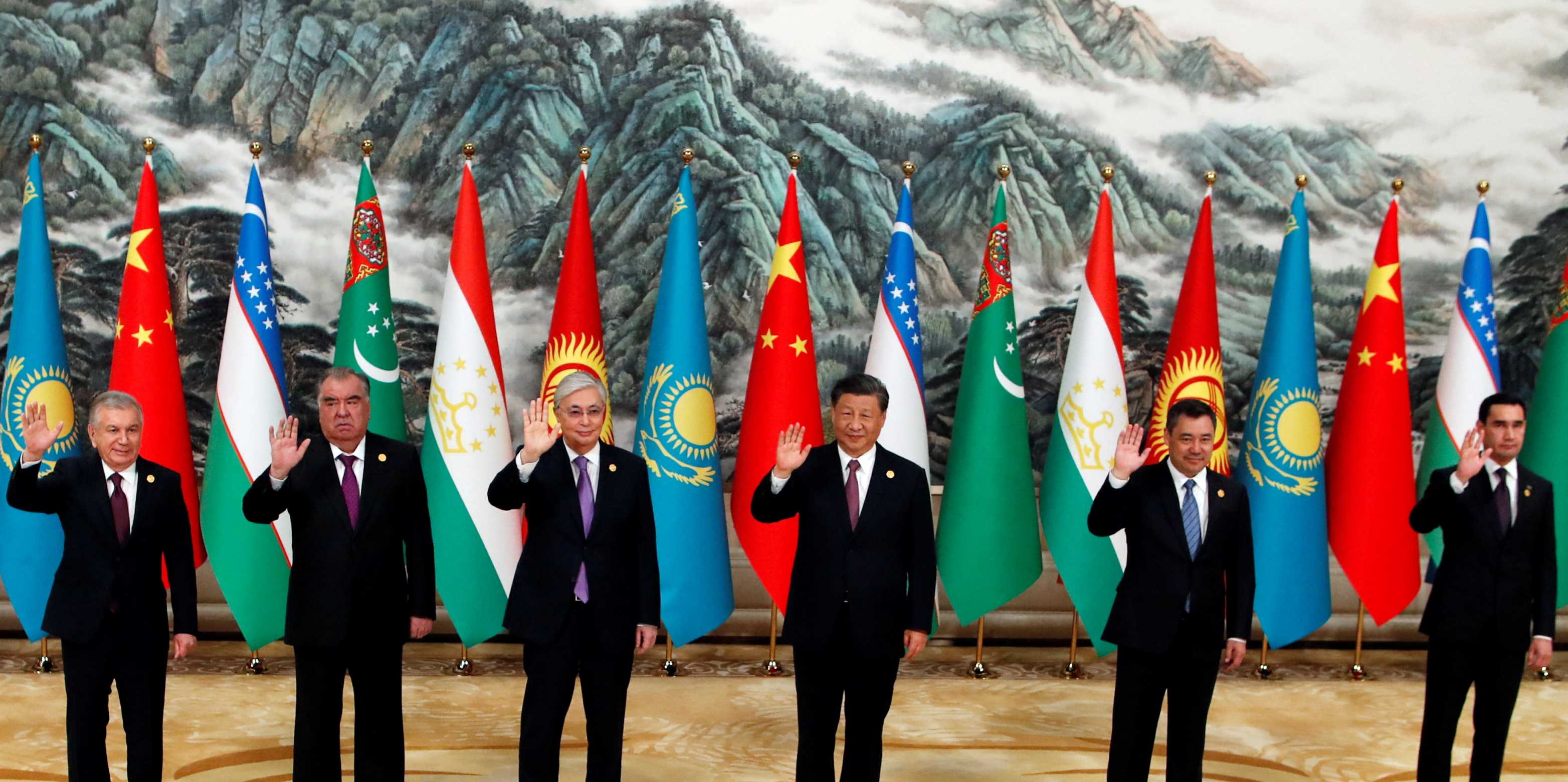Central Asia in an Era of Great-Power Rivalry
China has an opportunity to expand its influence in Central Asia significantly, as its recent summit with regional leaders demonstrated. This creates both opportunities and challenges for the Central Asian countries, which must contend with the effects of great-power rivalry on their region, argues CSS' Brian Carlson in this edition of the CSS Analyses in Security Policy series.

Recent events in great-power relations, including the US withdrawal from Afghanistan and Russia’s floundering war in Ukraine, have opened the door for a significant further expansion of China’s influence in Central Asia. This potential was on display at the China-Central Asia Summit in Xi’an, China, on May 18–19, where China pledged 3.6 billion USD of new development aid, as well as cooperation in regional security affairs. China’s regional engagement creates both opportunities and challenges for the countries of the region, which welcome China’s investment and economic assistance but worry about rising Chinese influence.
Five countries that emerged as independent states following the breakup of the Soviet Union – Kazakhstan, Kyrgyzstan, Tajikistan, Turkmenistan, and Uzbekistan – form the core of Central Asia. For Europe and the West, this region plays an important role on a range of issues, including energy and the connectivity of the Eurasian landmass. Traditionally, the Central Asian countries have pursued “multi-vectored” foreign policies that aim to bolster their sovereignty by achieving balanced relations with external powers. As great-power rivalry intensifies at the global level, such efforts will become increasingly challenging.